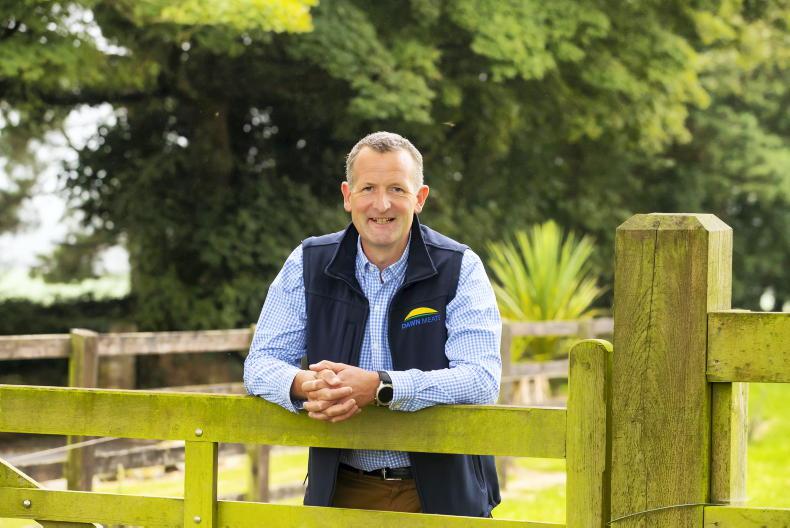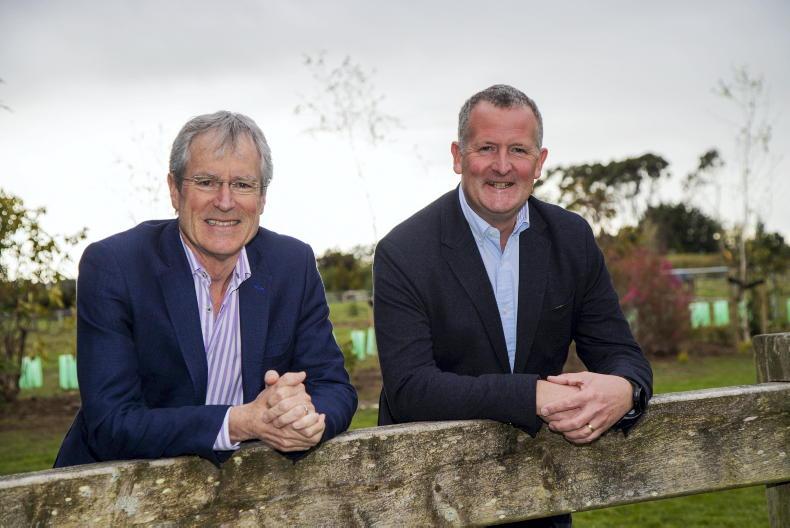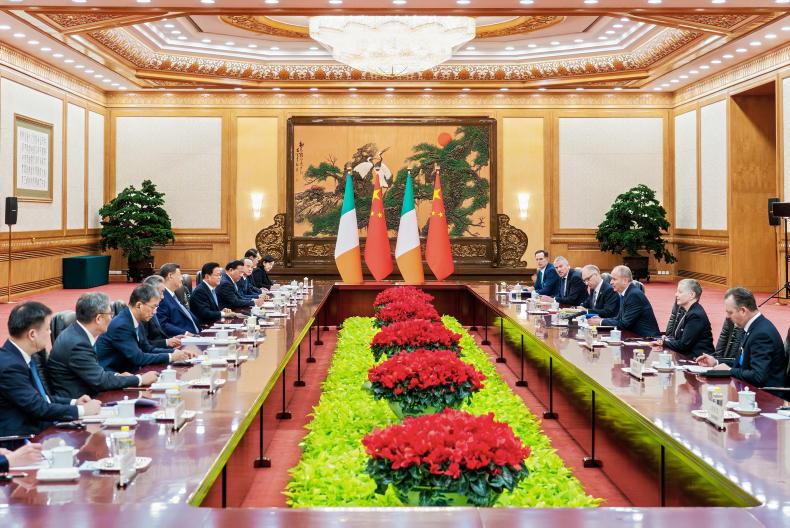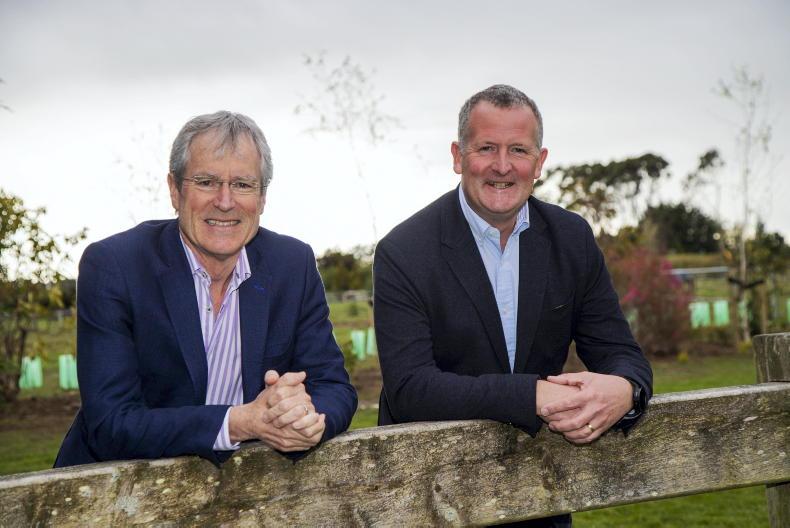The Competition and Consumer Protection Commission (CCPC) cleared the Dawn Meats acquisition of Kildare Chilling last week.
The deal means that in the Republic of Ireland Dawn Meats will own six factories for processing cattle, still one behind ABP, which has seven.
While specific numbers of cattle killed in each factory are not published, the Irish Farmers Journal estimates that, between them, ABP and Dawn are handling close to 1m cattle each year or half the total kill in the Republic of Ireland.
North of the border, ABP has two of the seven largest factories and Dawn, which trades as Dunbia in Northern Ireland and Britain, has one. Between them, they have around 40% of the Northern Ireland cattle kill.
Lamb processing is even more concentrated across the island of Ireland.
ABP’s Lurgan factory and Linden Foods, which is ABP-owned, along with Dunbia, handle almost 100% of the Northern Ireland lamb kill, while between 30% and 40% of Northern Irish lambs are exported live to the Republic of Ireland for processing, where the ABP-owned Irish Country Meats is a major buyer.
With Dawn adding Kildare Chilling which a major lamb as well as cattle processor, between ABP and Dawn they now control 70% of lamb processing in the Republic of Ireland, in addition to 100% in the North.
Britain
Dawn and ABP are also the largest cattle and sheep processors in Britain, as well as the island of Ireland.
They had already made acquisitions in Britain, but it was the acquisition of the Dunbia Group, first as a joint venture in 2017 and outright purchase in 2020, that moved Dawn into the big league alongside ABP.
This was a particularly clever strategic move on the part of Dawn because the Dunbia business was focused on supplying supermarkets whereas Dawn was concentrated on food service. It is one of the biggest suppliers of burgers to McDonald’s in Europe.
Dawn purchased Dunbia from the Dobson brothers, who had grown the business from a butcher’s shop in the 1970s to being one of the top supermarket suppliers in the UK.
Dawn continues to trade as Dunbia in the UK, rebranding existing Dawn factories to Dunbia and, in Ireland, Dunbia Slane was rebranded as Dawn.

Niall Browne, CEO, Dawn Meats.
While Dawn has been primarily an acquisitions-focused business, it has recently decided to get out of its joint venture in France where it had a 49% stake in Elivia since 2015. It is the second largest meat processor in France, spread across 14 sites and sales approaching €1bn.
Dawn CEO Niall Browne explained that the decision to sell the shares back to its partner Terrena, the farmer-owned co-op, was because “our vision for the French market and ambition for the future strategic direction of Elivia is not aligned with that of our partner, Terrena”.
It was something of a surprise when Dawn decided to get into the French processing industry in 2015 when the joint venture commenced.
However, with the then loss-making business back in significant profits, it caught industry watchers by surprise when they decided to exit in June this year.
No doubt the decision will release funds that can be used in the Kildare acquisition and refurbishment. Dawn will remain well placed to supply the French market having had a sales office established there for decades.
How Kildare Chilling will fit into Dawn
The big attraction in a factory acquisition for a large processor is adding to its supply base and Kildare Chilling will bring Dawn both extra cattle and sheep.
Despite being encouraged to shop around, farmers are creatures of habit and are inclined to do business with their closest factory because of convenience and relationships.
The Kildare factory was one of the foremost of the original big exporting factories and while it retains capacity to handle well over 100,000 cattle per year, it is well ready for refurbishment.
Dawn has not been slow to invest in refurbishment, where necessary, as well as adding further processing capability where required in its existing portfolio.
Dawn has already announced a €10m investment for Kildare to “improve processing facilities and deliver improved sustainability”.
Almost €2.5m was allocated to Kildare Chilling in the Government’s €100m Capital Investment Scheme for the processing and marketing of agricultural products.
The opposition to the Dawn takeover of Kildare Chilling was always centred around the curtailment of options for sheep farmers when it came to selling their stock.
As Phelim O’Neill shows in his analysis, the beef sector continues to have plenty of processors, with Kildare coming under the Dawn umbrella, maybe even being a positive for competition in that sector.
The CCPC said it looked at how “the proposed acquisition would affect competition in… the purchase of live lamb and sheep for slaughter in the State” and found that there will “remain a sufficient number of competitors” in the market. While IFA president Tim Cullinan accused the CCPC of failing farmers with this decision, the deal is now free to proceed after the delay caused by the regulatory investigation.
The ending of the CCPC’s involvement in the process does leave the door open for another Government body, which is just about ready to step into its new role – the office of the Agri Food Regulator.
Commitment
When President Michael D Higgins signed the legislation establishing the body in July of this year, Minister for Agriculture Charlie McConalogue said the “landmark legislation” demonstrated his personal “long-standing commitment to bring increased fairness and transparency to the agricultural and food supply chain”.
The inclusion of both “fairness” and “transparency” in the minister’s remarks is important as, for the meat industry in particular, not only does it have to play fair, it needs to do much more to be seen to play fair.
The Competition and Consumer Protection Commission (CCPC) cleared the Dawn Meats acquisition of Kildare Chilling last week.
The deal means that in the Republic of Ireland Dawn Meats will own six factories for processing cattle, still one behind ABP, which has seven.
While specific numbers of cattle killed in each factory are not published, the Irish Farmers Journal estimates that, between them, ABP and Dawn are handling close to 1m cattle each year or half the total kill in the Republic of Ireland.
North of the border, ABP has two of the seven largest factories and Dawn, which trades as Dunbia in Northern Ireland and Britain, has one. Between them, they have around 40% of the Northern Ireland cattle kill.
Lamb processing is even more concentrated across the island of Ireland.
ABP’s Lurgan factory and Linden Foods, which is ABP-owned, along with Dunbia, handle almost 100% of the Northern Ireland lamb kill, while between 30% and 40% of Northern Irish lambs are exported live to the Republic of Ireland for processing, where the ABP-owned Irish Country Meats is a major buyer.
With Dawn adding Kildare Chilling which a major lamb as well as cattle processor, between ABP and Dawn they now control 70% of lamb processing in the Republic of Ireland, in addition to 100% in the North.
Britain
Dawn and ABP are also the largest cattle and sheep processors in Britain, as well as the island of Ireland.
They had already made acquisitions in Britain, but it was the acquisition of the Dunbia Group, first as a joint venture in 2017 and outright purchase in 2020, that moved Dawn into the big league alongside ABP.
This was a particularly clever strategic move on the part of Dawn because the Dunbia business was focused on supplying supermarkets whereas Dawn was concentrated on food service. It is one of the biggest suppliers of burgers to McDonald’s in Europe.
Dawn purchased Dunbia from the Dobson brothers, who had grown the business from a butcher’s shop in the 1970s to being one of the top supermarket suppliers in the UK.
Dawn continues to trade as Dunbia in the UK, rebranding existing Dawn factories to Dunbia and, in Ireland, Dunbia Slane was rebranded as Dawn.

Niall Browne, CEO, Dawn Meats.
While Dawn has been primarily an acquisitions-focused business, it has recently decided to get out of its joint venture in France where it had a 49% stake in Elivia since 2015. It is the second largest meat processor in France, spread across 14 sites and sales approaching €1bn.
Dawn CEO Niall Browne explained that the decision to sell the shares back to its partner Terrena, the farmer-owned co-op, was because “our vision for the French market and ambition for the future strategic direction of Elivia is not aligned with that of our partner, Terrena”.
It was something of a surprise when Dawn decided to get into the French processing industry in 2015 when the joint venture commenced.
However, with the then loss-making business back in significant profits, it caught industry watchers by surprise when they decided to exit in June this year.
No doubt the decision will release funds that can be used in the Kildare acquisition and refurbishment. Dawn will remain well placed to supply the French market having had a sales office established there for decades.
How Kildare Chilling will fit into Dawn
The big attraction in a factory acquisition for a large processor is adding to its supply base and Kildare Chilling will bring Dawn both extra cattle and sheep.
Despite being encouraged to shop around, farmers are creatures of habit and are inclined to do business with their closest factory because of convenience and relationships.
The Kildare factory was one of the foremost of the original big exporting factories and while it retains capacity to handle well over 100,000 cattle per year, it is well ready for refurbishment.
Dawn has not been slow to invest in refurbishment, where necessary, as well as adding further processing capability where required in its existing portfolio.
Dawn has already announced a €10m investment for Kildare to “improve processing facilities and deliver improved sustainability”.
Almost €2.5m was allocated to Kildare Chilling in the Government’s €100m Capital Investment Scheme for the processing and marketing of agricultural products.
The opposition to the Dawn takeover of Kildare Chilling was always centred around the curtailment of options for sheep farmers when it came to selling their stock.
As Phelim O’Neill shows in his analysis, the beef sector continues to have plenty of processors, with Kildare coming under the Dawn umbrella, maybe even being a positive for competition in that sector.
The CCPC said it looked at how “the proposed acquisition would affect competition in… the purchase of live lamb and sheep for slaughter in the State” and found that there will “remain a sufficient number of competitors” in the market. While IFA president Tim Cullinan accused the CCPC of failing farmers with this decision, the deal is now free to proceed after the delay caused by the regulatory investigation.
The ending of the CCPC’s involvement in the process does leave the door open for another Government body, which is just about ready to step into its new role – the office of the Agri Food Regulator.
Commitment
When President Michael D Higgins signed the legislation establishing the body in July of this year, Minister for Agriculture Charlie McConalogue said the “landmark legislation” demonstrated his personal “long-standing commitment to bring increased fairness and transparency to the agricultural and food supply chain”.
The inclusion of both “fairness” and “transparency” in the minister’s remarks is important as, for the meat industry in particular, not only does it have to play fair, it needs to do much more to be seen to play fair.










SHARING OPTIONS